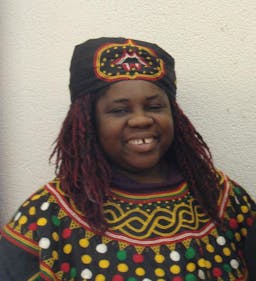WECAN Climate Justice Road Show and Mobilisation Tour
Jan 21, 2015
Story
WECAN Climate Justice Road Show and Mobilization Tour
Theme : Sisters on the Road: No Climate Justice without Gender Justice
Date: June 2010 - December 2011
What is The WECAN Climate Justice Road Show and MobilizationTour About?
Women Environment and Climate Action Network (WECAN) is embarking on 18 Months (June 2010-December 2011) , Africa state tour-called the WECAN Climate Justice Road Show and Mobilization Tour- to hear the views and experiences of Africa women in this pivotal era of climate change. We will meet women across the 5 sub regions of Africa with rallies in Johannesburg, South Africa (Southern Africa) , Accra, Ghana (West Africa) Tripoli. Libyia (North Africa) Yaounde Cameroon (Central Africa) and Nairobi Kenya (East Africa). The WECAN Climate Justice Road Show and Mobilization Tour aims to:
Build awareness around climate change having a disproportionate impact on rural communities -particularly poor Africa women -and poor communities
Involve more African women in the environmental justice and climate action movement
Educate Africa policymakers about the devastating impacts of climate change on Africa women and their communities and push for environmental policies and practices that protect all people in the the continent.
Why do a Road Show and Mobilization Tour now?
Research shows that unless we all drastically diminish the amount of greenhouse gases released into the atmosphere, climate changes will worsen and will cause irreversible damage, destroy multiple species and deeply change our way of life. Research also indicates, that negative affects of climate change, like severe weather events or harmful practices in alternative energy efforts, such as toxin emitting "clean coal" power plants, exacerbate the existing disparities to Africa women, low-income communities, and the rest of the continent.
The perspectives of Africa women and low-income communities are largely absent from the discussion on the immense challenges of climate change. It's time for everyone affected by global warming to be included in the conversation and the problem solving, particularly the most vulnerable among us.
"Women make up approximately 70% of those living in poverty, and low-income women, Africa women , and immigrants will be most impacted by the severe weather events, heat waves, and increases in disease rates that will characterize Earth's changing climate."
The WECAN Climate Justice Road Show and Mobilization Tour is a Pan African, awareness-raising and movement building campaign will give insight into how climate change is impacting the lives of Africa women and their communities. In each Subregion, Africa women will describe the changes and challenges they face, as well as actions of community resistance and local self-reliance.
The WECAN Climate Justice Road Show and Mobilization Tour is happening now because Africa women face the burden of Climate Change in Africa and enough education and awareness must be raised by women and other key stakeholders to ensure that women concerns are integrated into the Continental Climate Change Plan. Black Women and low-income communities in the Global North intimately experience negative impacts of climate change, as do many women in the Global South. In Africa today women and their children suffer from many diseases due to the lack of clean and safe water. adequate sanitation and other issues.
From the Global North some case studies include ; a Latina woman in Michigan developing a rare form of cancer due to exposure to toxins from a steel processing plant and a refinery, a Native American/American Indian woman in Arizona whose sacred land is violated by people extracting water due to a diminishing water supply, an Inuit woman in Alaska whose community is facing forced migration due to intensifying river flow and melting permafrost, and the approximately 56,000 African American pregnant women disrupted by lack of safe water, healthcare, proper sanitation or adequate shelter after Hurricane Katrina, all share the harmful impacts of the tacit neglect of policy makers when it comes to decision making that is in the interest of the wellbeing of women of color and their communities. This is climate injustice plain and simple. Neither our nation, nor, our world can survive this imbalance.
"No community should be saddled with more environmental burdens and less environmental benefits than any other. Unfortunately, race and class are extremely reliable indicators as to where one might find the good stuff, like parks and trees; or where one will find the bad stuff like power plants and waste facilities."
-Majora Carter
For more information.
Please contact Ms Rosemary Olive Mbone Enie
Coordinator Women Environment and Climate Action Network (WECAN)
Founder/CEO/President Society for Women Empowerment Education and Training (SWEET) Africa Foundation
Email: sweetafrica09@gmail.com




